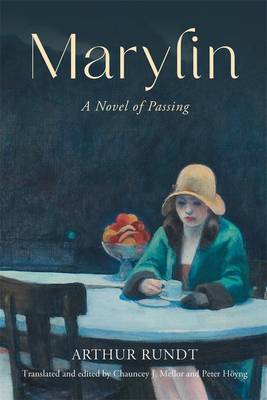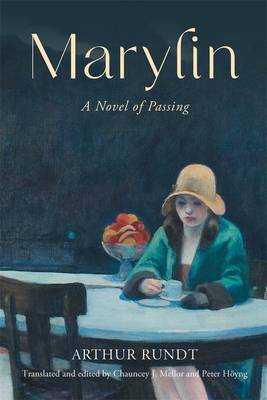
Vous voulez être sûr que vos cadeaux seront sous le sapin de Noël à temps? Nos magasins vous accueillent à bras ouverts. La plupart de nos magasins sont ouverts également les dimanches, vous pouvez vérifier les heures d'ouvertures sur notre site.
- Retrait gratuit dans votre magasin Club
- 7.000.000 titres dans notre catalogue
- Payer en toute sécurité
- Toujours un magasin près de chez vous
Vous voulez être sûr que vos cadeaux seront sous le sapin de Noël à temps? Nos magasins vous accueillent à bras ouverts. La plupart de nos magasins sont ouverts également les dimanches, vous pouvez vérifier les heures d'ouvertures sur notre site.
- Retrait gratuit dans votre magasin Club
- 7.000.0000 titres dans notre catalogue
- Payer en toute sécurité
- Toujours un magasin près de chez vous
Description
Offers a European view of racial attitudes in the US during the era of the Harlem Renaissance and Jim Crow, with relevance to today's Black Lives Matter and #MeToo movements. Marylin, a novel by the Austrian writer Arthur Rundt about a mixed-race woman passing as white, moves from Chicago to New York City and concludes tragically on a Caribbean island. First published in 1928 and now translated into English, it offers a European view of racial attitudes in the US during the era of the Harlem Renaissance and Jim Crow. Rundt's short but powerful novel touches several vital issues in society today, engaging each in a way that prompts further examination and cross-fertilization. First, it sheds historical light on what has become painfully obvious in the Black Lives Matter era (if it wasn't before): the continued injustice experienced by Blacks in America as an effect of structural racism. Second, it confronts issues of migration and hybrid identities. Third, it has relevance for Women's Studies through the title character's interaction with the patriarchy. Through these connections, it responds to a growing current in German Studies concerned with diversity and inclusion and integrating the discipline into the broader humanities. An introduction and an afterword, both of them extensive and scholarly, contextualize the novel in its time and as it relates to ours.
Spécifications
Parties prenantes
- Auteur(s) :
- Editeur:
Contenu
- Nombre de pages :
- 152
- Langue:
- Anglais
- Collection :
- Tome:
- n° 231
Caractéristiques
- EAN:
- 9781640141483
- Date de parution :
- 20-09-22
- Format:
- Livre relié
- Format numérique:
- Genaaid
- Dimensions :
- 152 mm x 229 mm
- Poids :
- 371 g







